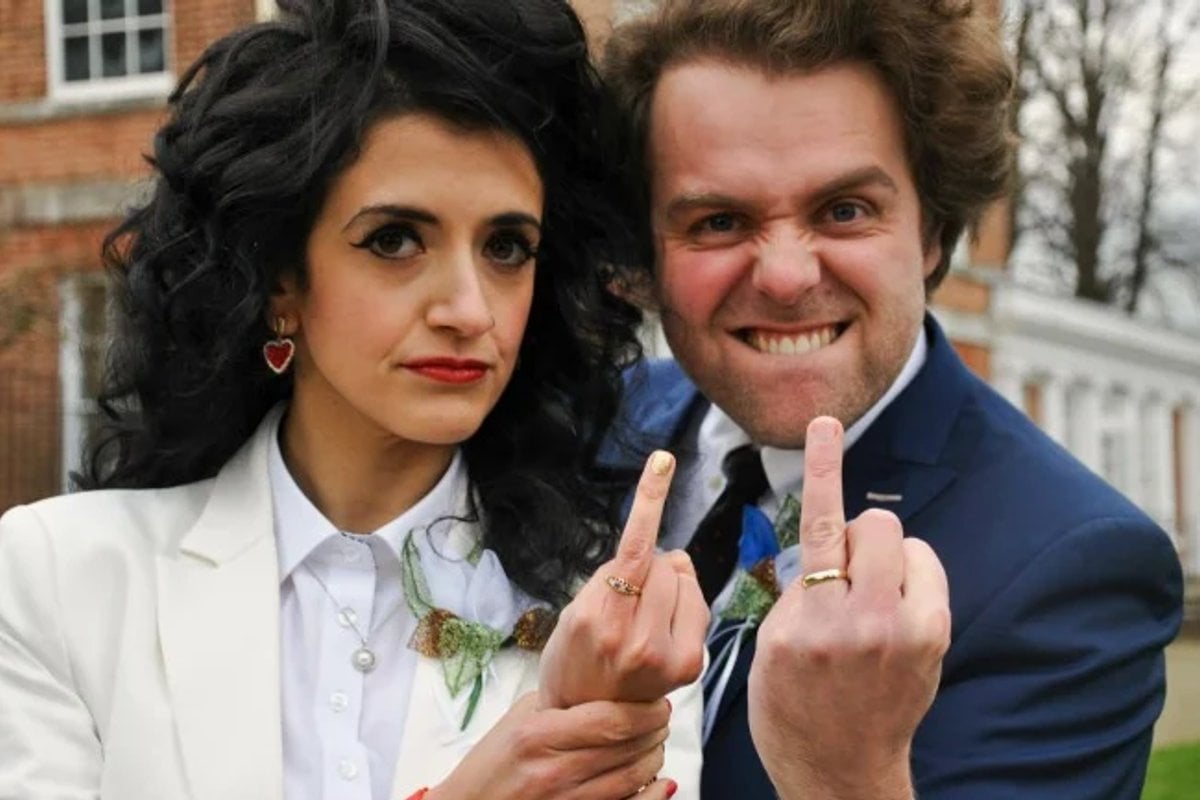
Recently hitched couples can appreciate even more than the rest of us just how many traditions there are to consider for your wedding. Will the bride wear white? Will you wed in a church? Will one of you be 'given away'? But is tradition alone a good enough reason for doing any of these things?
Two married couples explain to Mamamia their reasons for taking a different approach to the traditional act of saying 'I do' to a new surname.
Paediatric nurse, Amber, is happily married to general practitioner, Adam, and mum to almost six-year-old Felix, three-year-old Hugo, and two-year-old Zeke. Amber and her sons share a surname, but as she explains, it is not the same as her husband’s.
"Adam and I had a very traditional wedding; I wore a beautiful white dress, I had five bridesmaids and a sit-down meal followed by a party with our family and friends. We really enjoyed the celebratory aspect of being engaged and getting married, but like many other brides, I decided to keep my own surname of Sinclair.
"Three years later when pregnant with Felix, Adam and I discussed what the baby’s surname would be. I questioned the general assumption that he would automatically take Adam’s, and why the man’s family name is still considered more important than the woman’s. We also took into account the practical fact that my surname is easier to pronounce and spell than Adam’s!



Top Comments
I wonder how enthusiastic and proactive men like Jamie would be if taking their wife's name wasn't an opportunity to virtue signal and get attention. Seems to cheapen the gesture if a main motivating factor is to "show off".
Many women change their name to show off their marital status so who cares if a man does it.
Good on them for bucking a fairly one-sided tradition.
"Women can be obnoxious too" isn't really a defence or mitigate the argument.